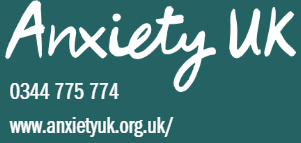
Sue Chambers
BACP Registered Person Centred Counsellor
Face to Face or online sessions via Zoom
Hello I’m Sue, an experienced trauma informed psychotherapeutic counsellor. I’m a member of the British Association for Counselling and Psychotherapy and as such my work is underpinned by a strong code of ethics.
About Me
Alongside my private counselling practice I work with several charitable organizations offering mentoring, therapeutic support, person-centered psychotherapy, experiential therapy and the delivery of psychoeducation. I emphatically believe in human potential and the capacity for personal growth. I’m committed to bringing this ethos into my work with clients. I am passionate about the empowerment of others by means of advocating elements of self-confidence and self-belief to promote mental wellbeing.
Previously from a business background, I retrained to be a counsellor in my 40’s having realized that my true calling was utilizing my personal attributes to work with people on a relational level.
In my spare time I enjoy the simple things in life. Walking in nature is my most treasured form of self-care. My partner and I both love animals and own two dogs and a feisty cat. I’m also lucky enough to be involved with delivering a form of an equine-assisted therapy model, named EAGALA. This offers engagement with two of my favourite things… horses and young people.
I have experience of working with a range of issues, including: Trauma, Depression, Abuse, Anxiety, Bereavement, Self-harm, Self-esteem, Grief and Sexuality
I offer a warm, safe, supportive, and confidential space for you to explore your individual self, at a pace that feels right for you. I am not here to judge or tell you what to do. Instead, I aim to create a safe and confidential space for you to talk about anything in life that you may be struggling with.
So what is a Person-Centred Counsellor?
Person-centred counselling is a humanistic approach to counselling, founded way back in the 1940s by the renowned psychologist Carl Rogers.
Simplistically, this is the belief that given the right conditions, a person can attune to their inherent potential for growth (known as the actualization tendency), and in doing so can become aligned with and motivated by an authentic sense of self.
During our sessions I will offer you:
Unconditional Positive Regard (UPR) – This involves showing complete acceptance of you, no matter what you say or do. I will place no conditions on this acceptance.
Empathic Understanding – Seeing your world from your perspective, including how you sense and feel it, without becoming lost in those feelings.
Congruence – Being honest and transparent in how I experience you and your world and in doing so offering my authentic self to you.
In short, I predominately utilize Rogers’ theory as a foundation for my understanding of how personal history impacts our daily experiencing and ways of relating to others. I hold in the forefront of my mind the complexity of the human experience, client’s unique individualism and adapt my way of working to incorporate other theories and ideas which might enlighten my work with each client.
Availability
I offer face to face or online (Zoom) therapy sessions with availability Monday to Thursday and Saturdays including evenings.
Initial Consultation
I offer a free 30 minute consultation which can be face to face, online (Zoom) or by telephone. This will allow us to discuss what it is you would like to work on and see if you feel comfortable with us working together. You will have an opportunity to ask me any questions you may have.
I will explain how I will assist you and walk you through the next steps should you wish to proceed.
Rates
My standard rate is £55 for each 50 minute session, though this is flexible with discounts available for low income households and students.
things you may be struggling with
Abuse
The word abuse covers many ways someone may harm another person:
Physical abuse This is intentional bodily injury. Some examples include pinching, slapping, choking, shoving, kicking or inappropriately using drugs or physical restraints.
Sexual abuse This is non-consensual sexual contact (any unwanted sexual contact). Examples include coerced nudity, sexually explicit photographing, unwanted touching, rape or sodomy.
Mental mistreatment or emotional abuse This is deliberately causing mental or emotional pain to another person. Examples include ridiculing, coercion, intimidation, harassment, treating an adult like a child, isolating an adult from family, friends, or regular use of silence to control behaviour, and yelling or swearing which results in mental distress.
Exploitation This occurs when a vulnerable person or his/her resources or income are improperly or illegally used for another person's profit or gain. Examples include unlawfully withdrawing money out of another person’s account, forging checks, or stealing things from a vulnerable person.
Neglect occurs when a person, either through his/her action or inaction, deprives a vulnerable person of the care necessary to maintain physical or mental health. Examples include not providing basic items such as food, water, clothing, a safe place to live, medicine, or health care.
Abandonment occurs when a vulnerable person is left without the ability to obtain necessary shelter, food, clothing or health care. Examples include deserting a vulnerable person in a public place or leaving a vulnerable person at home without the means of getting necessities.
Anxiety
Anxiety is a natural human response to worry, fear or if you feel under threat.
Anxiety can be severe making it hard to control your worries which can affect your daily life. It can be a main symptom of several conditions, including panic disorder, phobias, social anxiety disorder (social phobia) and post-traumatic stress disorder.
Anxiety can trigger the “Fight, Flight or Freeze” response which is a natural way to protect ourselves from danger, by releasing hormones like adrenaline or cortisol.
Strong feelings of anxiety that last for a long time can affect your ability to live your life. You may avoid situations that could cause you to feel anxious.
Bereavement
Bereavement is the experience of losing someone important to us and is characterised by grief.
Grief is the response to loss, particularly to the loss of someone or some living thing that has died, to which a bond or affection was formed. Grief associated with death is familiar to most people, but individuals grieve in connection with a variety of losses throughout their lives, such as the end of a relationship.
Although conventionally focused on the emotional response to loss, grief also has physical, cognitive, behavioural, social, cultural, spiritual and philosophical dimensions. While the terms are often used interchangeably, bereavement refers to the state of loss, while grief is the reaction to that loss.
Addiction
Addiction is a neuropsychological disorder characterised by a persistent and intense urge to engage in certain behaviours.
One of which is the usage of a drug, despite substantial harm and other negative consequences.
Repetitive drug use often alters brain function in ways that perpetuate craving and weakens (but does not completely negate) self-control.
Classic signs of addiction include compulsive engagement in rewarding stimuli, preoccupation with substances or behaviour, and continued use despite negative consequences.
Habits and patterns associated with addiction are typically characterised by immediate gratification (short-term reward), coupled with delayed deleterious effects (long-term costs).
Anger
Anger is an intense and primary emotion…
potentially involving strong responses to a perceived provocation, threat or antagonism toward something or someone that you feel has deliberately done you wrong.
Anger can be a good thing, as it can give you a way to express negative feelings, however, excessive anger can cause physiological problems, such as an increase in blood pressure which can make it difficult to think straight, thus damaging your physical and mental health.
While anger has a functional value for survival, uncontrolled anger can negatively affect your personal or social well-being and also negatively impact those around you.
Anger can be displayed in a variety of ways:
Passive Anger – This can include Evasiveness such as not arguing back or avoiding conflict, Dispassion such as giving a fake smile or talking about frustrations but not showing feelings or Psychological Manipulation such as provoking aggression but staying on the sidelines.
Aggressive Anger – This can include Bullying such as directly threatening, insulting, oppressing or persecuting, Hurtfulness, such as verbal abuse, violence, sexual abuse and rape or Vengeance, such as being over-punitive.
Assertive Anger – This can include Blame such as censuring, or holding responsible, Punishment such as limiting or excluding from activities or Sternness such as chastising a person with complete disappointment or disapproval.
Depression
Depression is a low mood that lasts for weeks or months and affects your daily life.
Depression is a mental illness that affects around one in 10 people.
Depression differs from usual mood fluctuations and short-lived emotional responses to challenges in everyday life, especially when recurrent and with moderate or severe intensity.
It can become a serious health condition which can cause a great deal of suffering for the affected person, and can cause them to function poorly at work, at school and in the family. At its worst, depression can lead to suicide.























